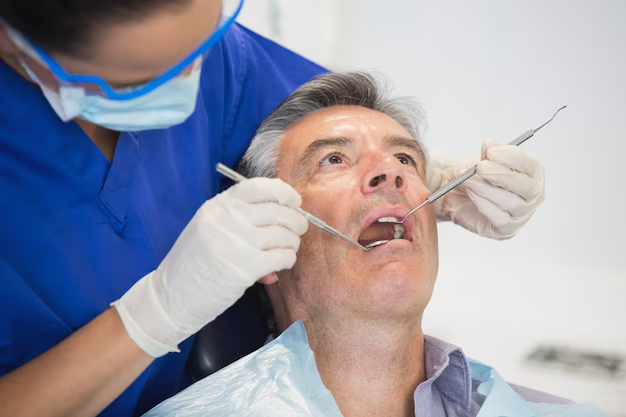Your Guide to Does Medicare Cover Dental Crowns
What You Get:
Free Guide
Free, helpful information about Medicare Insurance and related Does Medicare Cover Dental Crowns topics.
Helpful Information
Get clear and easy-to-understand details about Does Medicare Cover Dental Crowns topics and resources.
Personalized Offers
Answer a few optional questions to receive offers or information related to Medicare Insurance. The survey is optional and not required to access your free guide.
Is Medicare a Solution for Your Dental Crowns Needs?
Navigating the landscape of healthcare coverage can be daunting, especially when it comes to understanding dental benefits under Medicare. Many individuals hope that their Medicare plan will cover dental crowns, a common restorative dental procedure. However, if you’re counting on Medicare to foot the bill for dental crowns, you might need to reassess your options.
Medicare and Dental Coverage
Medicare, primarily designed to cover medically necessary services, surprisingly leaves out most dental care. Medicare Part A and Part B, the components that deal with hospital and medical insurance, respectively, generally exclude routine dental care, including cleanings, fillings, extractions, and, yes, even dental crowns. The rationale is that dental care isn’t deemed essential to treating acute or chronic diseases covered by these parts of Medicare.
In some exceptional cases, Medicare might cover dental work if it's a component of a procedure that’s deemed medically necessary. For example, if you need a dental exam prior to a kidney transplant or heart valve replacement, Medicare may cover it. But, even in these instances, dental crowns would likely remain excluded.
Exploring Practical Alternatives
If you find yourself in need of financial assistance for dental crowns, don’t lose hope. There are several alternatives to explore:
Medicare Advantage Plans
Medicare Advantage (Part C) plans often provide additional benefits that Original Medicare does not. This can sometimes include dental, vision, and hearing coverage. Since these plans are offered by private insurance companies, the extent of dental coverage varies. Individuals should investigate what specific benefits, including crown coverage, their plans offer.
Supplemental Dental Insurance
Considering a separate dental insurance plan could save you money on procedures like crowns. Many insurers offer dental policies specifically designed to cover a broad spectrum of dental care needs, including routine exams, cleanings, and restorative procedures like crowns and bridges.
Dental Discount Plans
Another cost-effective option is to enroll in a dental discount plan, an alternative to traditional insurance. These plans provide substantial discounts on dental procedures, sometimes ranging from 10% to 60% of the cost, for an annual or monthly fee.
Government Assistance Programs
For those eligible, programs such as Medicaid can help cover dental costs, though coverage levels vary by state. Some states offer more comprehensive dental care services, while others may offer limited coverage.
Financial Assistance and Education Opportunities
Quality oral health should never be put on hold due to financial constraints. Below are some options that offer financial assistance or healthcare education opportunities to alleviate dental care costs:
- 🦷 Dental Schools: Often provide services at reduced prices for experimental purposes.
- 📚 Educational Grants: Available for those entering dental or healthcare fields to help offset tuition and potentially receive care discounts.
- 💳 Credit Card Solutions: Medical credit cards offer a way to defer payments for healthcare services, sometimes with interest-free promotional periods.
- 💻 Online Resources: Websites dedicated to comparing dental plans and financial advice can be invaluable.
While Medicare may not be your direct answer for dental crowns, a tapestry of solutions is available, each with its own set of considerations and benefits. Evaluate these carefully to maintain your dental health without compromising your financial well-being.
What You Get:
Free Medicare Insurance Guide
Free, helpful information about Does Medicare Cover Dental Crowns and related resources.

Helpful Information
Get clear, easy-to-understand details about Does Medicare Cover Dental Crowns topics.

Optional Personalized Offers
Answer a few optional questions to see offers or information related to Medicare Insurance. Participation is not required to get your free guide.


Discover More
- Am I Elgible For Medicare
- Am I Enrolled In Medicare
- Am I Qualified For Medicare
- Are Adult Diapers Covered By Medicare
- Are Chemotherapy Drugs Covered By Medicare Part d
- Are Colonoscopies Covered By Medicare
- Are Covid Tests Covered By Medicare
- Are Cpap Machines Covered By Medicare
- Are Cpap Supplies Covered By Medicare
- Are Dental Implants Covered By Medicare
